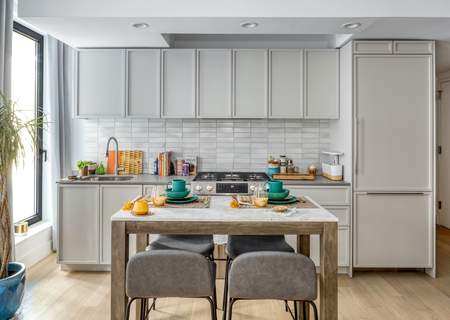
For many people, WeWork has become synonymous with coworking, the trend it helped popularize: allowing people to work remotely while sharing a well-designed office space with other digitally connected professionals. But lately WeWork has become synonymous with other things, too: an IPO attempt that crashed and burned, an eccentric and ousted CEO, charges of corporate malfeasance. Yikes! But get past the headline news and you can see that the seismic shift in the relationship between work and the office can't be stopped. Coworking is here to stay—and housing is evolving to fill that need.
In a bid to lure the kind of young, well-educated, relatively high-earning residents who are most likely to do remote work, developers are increasingly offering coworking space as a residential amenity. They're integrating conference rooms, lounge areas, and lightning-fast Wi-Fi into their new condo and rental buildings, and even going back to previously built ones to add those amenities.“The percentage of people that work in the office 40 hours a week is dwindling—and that means they need a network of locations to get their work done,” says Julie Whelan, head of occupier research for commercial real estate firm CBRE. Her company predicts that "flex space," which includes coworking companies like WeWork and Industrious, could account for as much as 20% of total U.S. office space by 2030.






